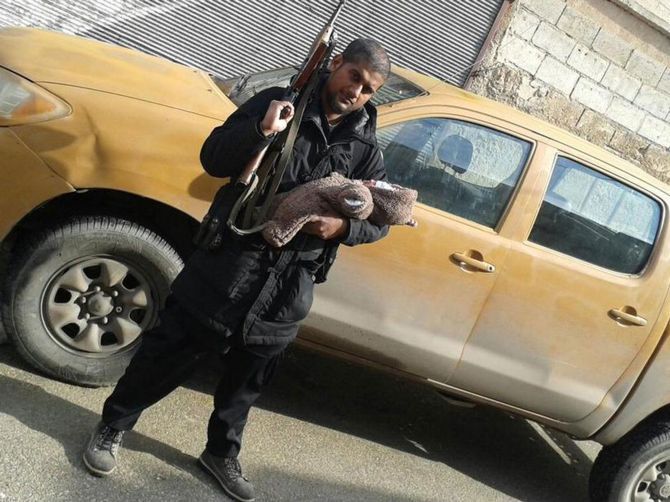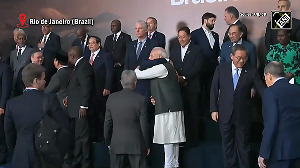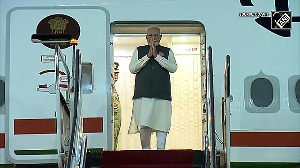British home secretary Theresa May told members of parliament that the government had no record on how many terror suspects may have jumped bail, and Scotland Yard said it was unable to say whether Siddhartha Dhar was added to any border watchlist before he left the country.

A day after it was revealed that British Indian Siddhartha Dhar was the new Jihadi John, uncomfortable questions have surfaced in England over how the terrorist from Daesh (Islamic State) slipped through security soon after securing bail in September 2014 and head to Syria.
The Telegraph, London, reports that Dhar had been given a week by the police to surrender his passport after he secured bail in a case against him as a terror suspect, but he simply took a bus to Paris from where he crossed over to Syria the very next day. The police acted on his disappearance and sent him a polite letter inquiring about his passport – weeks later.
More worryingly, British home secretary Theresa May told members of parliament that the government had no record on how many terror suspects may have jumped bail, and Scotland Yard said it was unable to say whether Dhar was added to any border watchlist before he left the country.
Nor, it seems, was Dhar placed on Britain’s Terrorism Prevention and Investigation Measure, which is designed to curb the activities of terror suspects.
Soon after surfacing in Syria, where joined the Daesh, Dhar, whose nom de guerre is Abu Rumaysah, posted a photograph of himself on Twitter, gloating: ‘What a shoddy security system Britain must have to allow me to breeze through Europe to the Islamic State,” he wrote. “My Lord (Allah) made a mockery of British intelligence and surveillance.’
And on Sunday, when the terror group posted a video of the execution of five Syrians who it accused of being British spies, the authorities woke up to the possibility that the masked terrorist in the video who pulled the trigger may have been man who slipped out from under their nose in September 2014.
Andy Burnham, the shadow home secretary who had demanded an urgent parliamentary question, said there had been a “serious lapse in security", reports the Telegraph. "Whether or not he is the person in the video doesn't matter. The system has failed because it allowed him to abscond to Syria.”
Further, the newspaper quotes David Anderson QC, the British government's independent reviewer of anti-terror legislation, as saying: ‘With the benefit of hindsight, it is easy to thing that a police officer should have accompanied this person to his home and ensured that the passport was handed over.’
The lapse seems enormous in the background of Dhar’s extremist views which were known to the police and authorities.
As early as 2009, Dhar, who converted to Islam after his marriage to Aisha Tariq around 10 years ago, gave an interview in which he demanded that the British queen wear a burqa while discharging public duties.
The 32-year-old was arrested on September 25, 2014, one of nine men who were suspected of being a member of the banned group, al-Muhajiroun, and for encouraging terrorism. He had been arrested five times before that in terrorism-related offences.










